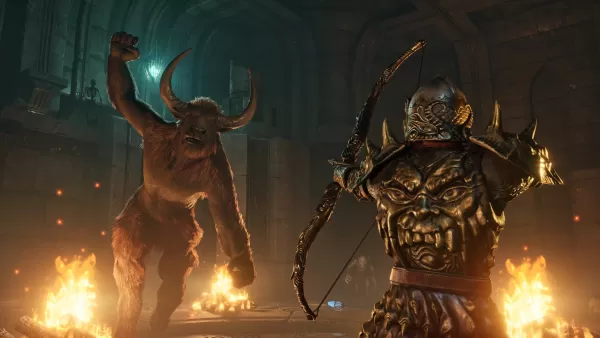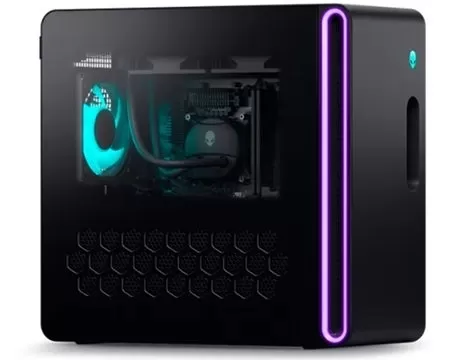When Bethesda unveiled *Oblivion Remastered* earlier this week, my excitement was palpable. The 2006 journey to Tamriel, once characterized by its quirky, potato-faced characters and blurry, low-resolution grasslands, has transformed into the most visually stunning *Elder Scrolls* game to date. I've been conditioned by past HD remasters to expect less than stellar results – think *Mass Effect Legendary Edition* and *Dark Souls Remastered*, which hardly differ from their Xbox 360 originals. Yet, seeing the Imperial City, a place I explored nearly two decades ago, now rendered in Unreal Engine 5 with ray tracing, was nothing short of astonishing. The game not only boasts a visual overhaul but also enhancements in combat, RPG systems, and numerous other details. This led me to question whether Bethesda and the developer, Virtuos, had misnamed the project. Should it not be called *Oblivion Remake* instead?
It seems I wasn't the only one pondering this. Fans across the board have labeled it a remake, and even Bruce Nesmith, a senior game designer on the original *Oblivion*, remarked, "I’m not sure [the word] remaster actually does it justice." Initially skeptical, after diving into the game for several hours, it became clear to me – *Oblivion Remastered* might look like a remake, but it plays like a remaster.
The reason *Oblivion* looks like a remake is straightforward: Virtuos has meticulously redesigned every single asset from scratch. From trees to swords and crumbling castles, everything you see on screen is brand new. This overhaul brings the game up to modern graphical standards with stunning textures, beautiful lighting, and a new physics system that makes every arrow and weapon strike feel realistic. Even the NPCs, while familiar, are entirely new models. This ambitious project rejects the idea of merely "looking like you remember" and instead strives to be exceptional by 2025 standards, making it the best-looking Bethesda Game Studios RPG to date. Had I seen this before the remaster rumors, I might have mistaken it for *The Elder Scrolls 6*.
But the enhancements extend beyond visuals. Combat has been significantly improved, making wielding a longsword feel far more satisfying than the original's balloon-like fencing. The third-person camera now includes a functional reticule, and every menu, from quest journals to dialogue and minigames like lockpicking and persuasion, has been refreshed. The original, problematic leveling system has been replaced with a more intuitive hybrid of *Oblivion* and *Skyrim*'s approaches. And yes, you can finally sprint. With such extensive visual and gameplay upgrades, one might argue we're venturing into remake territory.
Yet, the distinction between remaster and remake remains murky. Industry standards for these terms are not well-defined, leading to confusion. For instance, Rockstar's "Definitive Edition" remasters of the *Grand Theft Auto* trilogy are clearly PlayStation 2-era games with enhanced textures and lighting, while the *Crash Bandicoot N. Sane Trilogy*, also called a remaster, features entirely new assets and looks modern. Remakes like Bluepoint's *Shadow of the Colossus* and *Demon's Souls* rebuild games from the ground up but remain faithful to the originals. *Resident Evil 2* redesigns interactions within its survival horror framework, and *Final Fantasy 7 Remake* and *Rebirth* radically alter design, script, and story. These examples show the lack of a unified philosophy for what constitutes a remake.
Traditionally, rebuilding a game from scratch in a modern engine labeled it a remake, whereas remasters were limited upgrades within the original technology. However, this definition is becoming outdated. A more fitting modern definition might categorize a remaster as a graphical overhaul that maintains the original game's design with minor quality-of-life improvements, while a remake involves redesigning the game entirely. This would reclassify *Demon's Souls* and *Metal Gear Solid: Delta* as remasters, reserving the term "remake" for games that truly reinvent their predecessors.

So, is *Oblivion Remastered* a remake or a remaster? After playing it, it's evident that it's aptly named. The new assets and Unreal Engine 5's ray tracing make it look fresh, but beneath the surface, it retains the core elements of the original 2006 game. Bethesda emphasized, "We looked at every part and carefully upgraded it. But most of all, we never wanted to change the core. It’s still a game from a previous era and should feel like one."
The game's roots are unmistakable. Loading screens still appear behind every door, the persuasion minigame remains baffling despite its interface upgrade, city designs feel like simplified stage sets, NPCs move and speak awkwardly, and combat, even after upgrades, feels detached. The game also retains its share of bugs and glitches, preserving the original's quirky charm.
Just months ago, Obsidian's *Avowed* showcased a modern take on *Elder Scrolls* elements, with its dynamic combat and exploration mechanics making *Oblivion Remastered* feel outdated. Yet, *Oblivion Remastered* still shines in 2025. Its world is enchanting, with vast fields reminiscent of Rohan filled with mysteries. Its ambitious features, like dynamic goblin wars and engaging quest structures, remain compelling even today. The game's old-school approach to player freedom feels refreshing against the backdrop of more recent, hand-holding games. However, its dialogue lacks finesse, its systems interconnect awkwardly, and its level design feels ancient. A true remake would update these elements, but *Oblivion Remastered* is about reliving the original experience.
Video games often borrow terminology from other mediums. In film, remakes are new productions with new casts and scripts, while remasters enhance existing films to meet modern quality standards. *Oblivion* mirrors this with its visual enhancements akin to 4K film restorations like *Jaws* and *The Godfather* – visually stunning yet unmistakably from their era. Alex Murphy, executive producer at Virtuos, likened the game engine to the brain and Unreal 5 to the body, emphasizing that the core gameplay remains untouched while the visual experience is revitalized.
*Oblivion Remastered* is precisely what it claims to be, and its achievements should not be underestimated. It sets a high bar for remasters, unlike *Mass Effect Legendary Edition*, which was merely a cleaned-up re-release, or *Grand Theft Auto: The Trilogy*, which felt like a cash grab. *Oblivion Remastered* looks like a remake crafted with passion but plays like a remaster cherished by fans, embodying the perfect balance of nostalgia and modernity.








